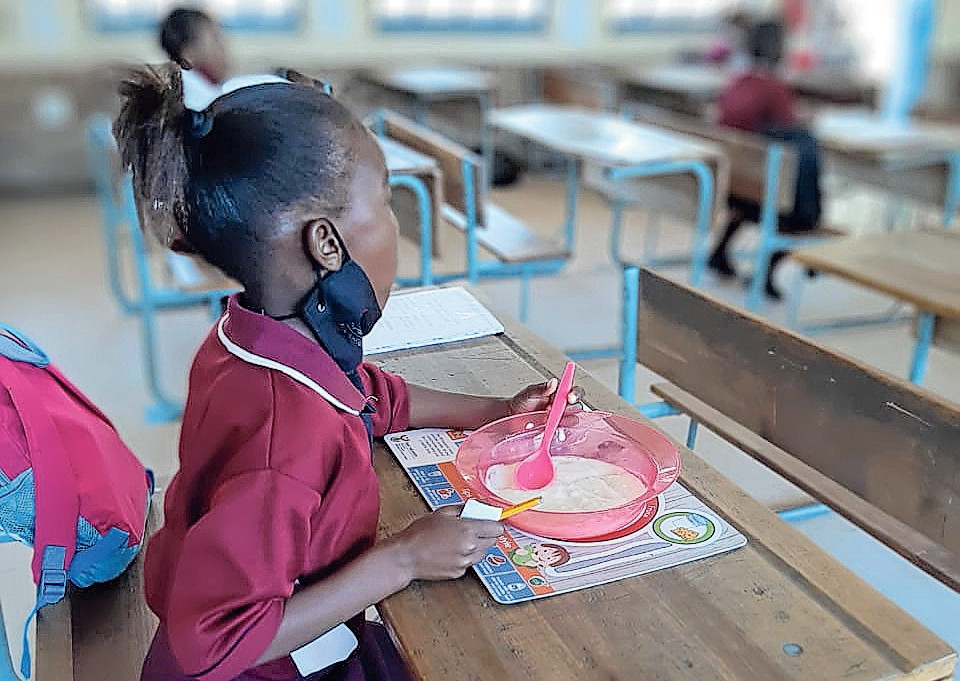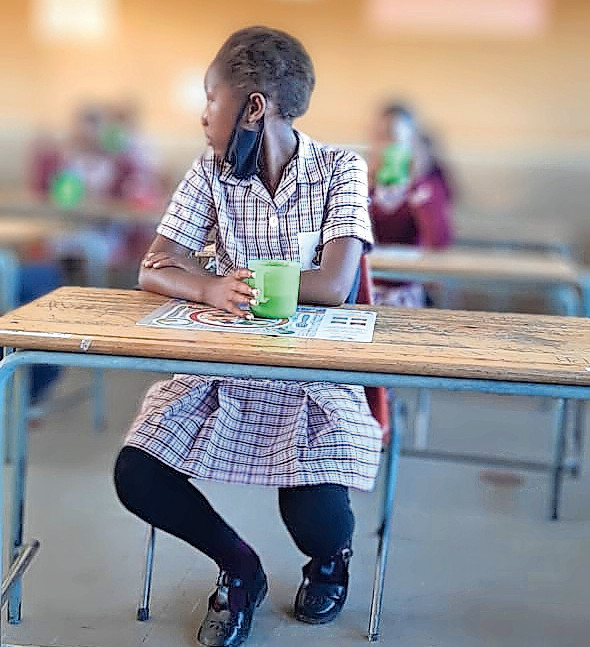The National School Nutrition Programme is South Africa’s second-largest social development assistance scheme after social grants. It is complemented by the provision of breakfasts at 101 public schools of the lower three quintiles by the Tiger Brands Foundation (TBF) and its partners. The Covid-19 pandemic and lockdown closed schools, which seriously affected the food security of the country’s schoolchildren
The UN’s Millennium Development Goals (MDGs) of the early 2000s preceded the much-expanded Sustainable Development Goals of today. South Africa was widely hailed for meeting, ahead of a 2015 target, its primary MDG target of eradicating extreme poverty and hunger.
Current data from the fourth annual Global Report on Food Crises suggests that 55 countries are, or soon will likely be, grappling with acute hunger. South Africa is not among them.

Yet the 2018 SA Survey of the Institute of Race Relation’s Centre for Risk Analysis reported that 22% of households struggled with food inadequacy in 2016, and an average of 15 400 children under the age of five years were admitted to hospitals each year from 2013 to 2016 suffering from severe acute malnutrition.
Why this disconnect? It is likely because South Africa’s social grants system quickly wiped out critical hunger and removed any danger of localised famine. But that is not the same as wiping out malnutrition — a full stomach does not always equate to healthy eating — obesity rates, among other things, bear this out.
Nutritional deficiency is sometimes called a “silent hunger”, and the Grow Great Campaign has found that 27% of SA children under the age of five years are chronically stunted. Research has shown that the quality of nutrition in a child’s first 1 000 days can have consequences in all manner of life chances right down the line.
This truth speaks to government’s keenness for the National School Nutrition Programme to be expanded across early childhood development centres, in addition to Department of Basic Education sites currently served. This midday in-school nutrition programme is the country’s second-largest social development assistance scheme, after social grants. It is complemented by the provision of breakfasts at 101 public schools of the lower three quintiles by the Tiger Brands Foundation (TBF) and its partners.
The TBF’s developmental model is uniquely inclusive of different stakeholders, each relying on the other, and thus a developmental model of co-creation and co-ownership. While complex, this approach empowers all participants in the programme, and is the developmental model most likely to succeed in its effectiveness across many sites of operation. Stakeholders working in this model include the Department of Basic Education, school principals and teachers, private social investors, parents trained as food handlers and small logistical suppliers.
It is an approach proven by independent assessments to be highly effective in its positive impact on educational outcomes, skills development, small business creation and school managerial capacity. But this important component of in-school nutrition needs the reinforcement of other South Africans of goodwill joining its efforts.

For there can surely be few community development investments that show higher social returns than improved nutrition for children. The Pietermaritzburg Agency for Community Social Action noted last year that a typical family of five (three adults, two children) needs to spend a minimum R4 000/month (Prescribed Minimum Benefits prices) on food to obtain enough calories for healthy living. Few households have food budgets of that size. Where people are spending is often on processed foods, which can mitigate against healthy eating.
And that’s in normal times. During the Covid-19 State of Disaster, in-school nutrition programmes were suspended for months, and state agencies and allied private social investors had to move quickly to identify the families at greatest risk, and provide them with emergency food security relief in the form of food hampers. Our Foundation was among the foremost suppliers of these, and we have been careful to ensure that the make-up of food hampers has adequate nutritional value.
This is not a time to take our eye off the fundamental purpose of bolstering food security — to increase the health of our people, and especially that of our youth. Indeed, one positive effect of this situation the past year has been a long-overdue and welcome recognition, by more social investors in particular, of the need for food security to be prioritised as a developmental cornerstone of national progress.
As we’ve faced the economic hardships associated with lockdown and schools’ suspension, so this recognition has carried across society. Thus, for example, there has been a clearly general change of attitude at grassroots level to small farming and projects involving food gardens. Where these had once faced image problems in communities that saw them as works of “child labour” or “glorified gardening”, such attitudes are becoming more positive.
So there has been good news among the bad on the food security front. We must not let this moment pass. Rather, let’s keep reminding ourselves that we should join hands and work closely together, whether public or private sector, rich or poor, to expand the reach of in-school nutrition programmes, and to do so in ways that are empowering and effective. It is the work of us all.
Eugene Absolom is Director of the Tiger Brands Foundation, www.thetigerbrandsfoundation.com